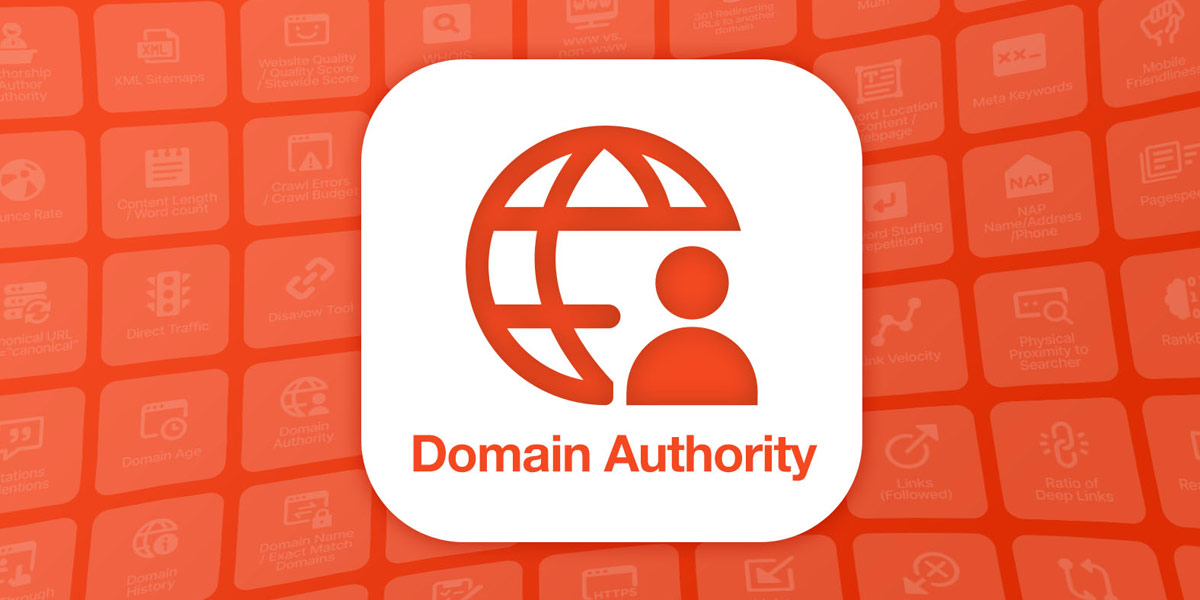What is Domain Authority and How to Increase It

If you own a website or work in the digital marketing field, you may have heard about “domain authority.” Domain authority is a metric that measures the strength and relevance of a website on a scale of 1 to 100. It is a crucial factor that affects your website’s ranking in search engine results pages (SERPs) and determines your online visibility and credibility. In this article, we will discuss what domain authority is, how it works, and how you can improve it to boost your website’s SEO performance.
What is Domain Authority?
Domain authority is a search engine ranking score developed by Moz, a popular SEO software company. It predicts how well a website will rank in SERPs based on various factors such as the quality and quantity of backlinks, content relevance, user experience, and other technical SEO elements. A high domain authority score indicates that a website is more likely to rank higher in search results, while a low score indicates the opposite.

What is Domain Authority?
How is Domain Authority calculated?
Moz calculates domain authority using a machine learning algorithm that analyzes more than 40 signals, including link quality and relevance, website age, social signals, and search engine friendliness. Domain authority is represented on a logarithmic scale from 1 to 100, where higher scores indicate stronger domains. The calculation is based on a comparison of your website’s link profile to other sites in Moz’s index. It’s important to note that domain authority is a relative metric, not an absolute one, meaning it compares your website’s authority to others in the same niche or industry.
Why is Domain Authority important for SEO?
Domain authority plays a crucial role in SEO as it impacts your website’s search engine ranking and visibility. Websites with high domain authority are more likely to rank higher in SERPs for relevant keywords, attract more organic traffic, and earn more clicks and conversions. On the other hand, websites with low domain authority may struggle to rank well and receive less organic traffic, leading to fewer opportunities for growth and revenue.
How to check your Domain Authority score?
You can check your website’s domain authority score using Moz’s free Link Explorer tool or other third-party SEO tools such as Ahrefs, SEMrush, and Majestic. Simply enter your website’s URL and let the tool analyze your website’s link profile and other factors that affect domain authority. You can also compare your domain authority score to your competitors’ to see how you stack up.

How to check your Domain Authority score?
How to increase your Domain Authority?
Now that you know what domain authority is and why it’s important let’s discuss how you can improve it to boost your website’s SEO performance.
Improve your website’s content quality and relevance
High-quality content is the backbone of any successful SEO strategy, and it’s essential for improving your domain authority. Ensure that your website’s content is unique, engaging, informative, and relevant to your target audience. Use keyword research and on-page optimization techniques to target high-volume and relevant keywords that align with your content and your audience’s search intent.
Optimize your website’s technical SEO
Your website’s technical SEO elements such as website speed, mobile-friendliness, sitemap, robots.txt, and meta tags also play a crucial role in improving your domain authority. Ensure that your website is technically sound, fast, and user-friendly to provide a better user experience and reduce bounce rates.
Earn high-quality backlinks from authoritative websites
Backlinks are a critical ranking factor that impacts your domain authority score. High-quality backlinks from authoritative and relevant websites can significantly improve your domain authority and search engine ranking. Focus on building a strong backlink profile by earning natural backlinks through content marketing, guest blogging, influencer outreach, and other white-hat link-building tactics. Avoid buying low-quality backlinks or using black-hat SEO techniques, as they can harm your domain authority and search engine visibility.
Increase your website’s social signals and engagement
Social media signals and engagement can also influence your domain authority score indirectly. Social media platforms such as Facebook, Twitter, and LinkedIn can help drive traffic to your website, increase brand awareness, and boost engagement. Use social media to promote your content, engage with your followers, and build your brand reputation. The more your content is shared, liked, and commented on, the more social signals you will earn, leading to improved domain authority and SEO performance.
Avoid negative SEO practices
Negative SEO practices such as buying low-quality links, keyword stuffing, cloaking, and other unethical tactics can harm your website’s domain authority and search engine ranking. Make sure to follow white-hat SEO practices and avoid any practices that violate search engine guidelines. Focus on providing value to your audience, improving your content quality, and building a strong online presence through ethical and sustainable SEO strategies.

How to increase your Domain Authority?
Conclusion
Domain authority is a crucial factor that impacts your website’s SEO performance and search engine ranking. Improving your domain authority requires a holistic approach that includes high-quality content creation, technical SEO optimization, earning high-quality backlinks, social media engagement, and ethical SEO practices. By focusing on improving your domain authority, you can increase your website’s online visibility, credibility, and revenue potential.
FAQ
What is the difference between domain authority and page authority?
Domain authority (DA) is a metric that predicts the overall strength and authority of an entire website’s domain. Page authority (PA), on the other hand, is a metric that predicts the strength and authority of a single page on a website. While both metrics are important for SEO, DA is more important for overall website performance, while PA is more relevant for individual page rankings.
How often should I check my domain authority score?
It is recommended to check your domain authority score periodically to track your website’s performance and identify any areas for improvement. However, it is important to note that domain authority is a relative metric that is updated frequently by search engines, and fluctuations in scores can occur even without any changes to your website. Therefore, it is best to focus on improving your website’s overall SEO performance rather than obsessing over your DA score.
Can I improve my domain authority score overnight?
No, improving your domain authority score is a long-term process that requires consistent effort and time. It can take several months or even years to significantly improve your domain authority, depending on various factors such as your website’s niche, competition, and quality of content.
How long does it take to see an improvement in domain authority?
It depends on various factors, such as the quality of your website’s content, the number and quality of backlinks, and the competitiveness of your niche. Generally, it can take anywhere from a few months to a year or more to see a significant improvement in your domain authority score.
Can a website with low domain authority still rank well in search engine results?
Yes, a website with low domain authority can still rank well in search engine results if it has high-quality content, relevant keywords, and a strong backlink profile. However, having a higher domain authority can help improve your website’s search engine visibility and credibility, leading to more organic traffic and better SEO performance.
How is domain authority calculated?
Domain authority is calculated using a proprietary algorithm developed by Moz, a leading SEO software company. The algorithm takes into account various factors such as the number and quality of backlinks, the age of the domain, and the content relevance and quality. The score is represented on a logarithmic scale from 0 to 100.
Can I increase my domain authority by buying backlinks?
No, buying backlinks is considered a black hat SEO tactic that violates search engine guidelines and can result in penalties and lower rankings. Low-quality or spammy backlinks can harm your website’s domain authority and reputation. It is important to focus on building high-quality, natural backlinks through content marketing, guest posting, and other legitimate link-building strategies.
Does a higher domain authority guarantee better rankings in search engine results?
No, while having a higher domain authority can improve your website’s SEO performance and visibility, it does not guarantee better rankings in search engine results. Search engines consider a wide range of factors when ranking websites, including the relevance, quality, and freshness of content, user experience, on-page optimization, and backlink profile. Therefore, it is important to focus on a comprehensive SEO strategy that includes multiple factors beyond just domain authority.
Can I compare my domain authority score with other websites?
Yes, you can compare your domain authority score with other websites in your niche or industry using various online tools such as Moz’s Link Explorer, Ahrefs, or SEMrush. However, it is important to remember that domain authority is a relative metric that is specific to each website, and comparing scores across different niches or industries may not be meaningful.

